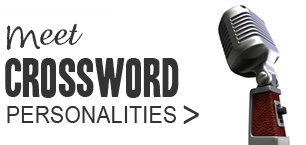
According to a study by Michael B Lewis, a senior lecturer at Cardiff University, cryptic crosswords are to blame for this.
In its series of articles on Improbable Research, the Guardian carries a report today about this study, which brings out a chilling dimension of the game.
Crossword puzzles are a threat to the criminal justice system. Indeed, they may have been doing damage for decades, causing guilty persons to be set free and innocent ones to become enmeshed in hellish entanglements with the courts and jails.
Read the full piece here by Marc Abrahams, the editor of the bimonthly Annals of Improbable Research and organiser of the Ig Nobel prize.
The actual study that this article talks about is reported here. In the experiment, sixty participants were made to do the following activities before the task of facial recognition:
- read a passage from Dan Brown's Da Vinci Code
- solve a Sudoku puzzle
- solve a literal crossword
- solve a cryptic crossword
Accuracy scores for face-recognition were plotted on a graph (page 1435 in the report) against the activity performed immediately before. The outcome - "performance in the cryptic crossword condition was considerably poorer than in the other conditions".
The experiment concludes that:
…doing a cryptic crossword leads to a detriment in face processing. Further, sudoku, literal crosswords, and reading do not have the same effect.
I only hope I never have to be eye-witness at an identity parade.
Related Posts:
- Garson Hampfield, Crossword Inker
- The Araucaria Counterweight Book Saver
- Unlikely Movie Characters as Potential Crosssword Setters
- A Puzzling Difference Between Crossword Solvers and Non-Solvers
If you wish to keep track of further articles on Crossword Unclued, you can subscribe to it in a reader via RSS Feed. You can also subscribe by email and have articles delivered to your inbox, or follow me on twitter to get notified of new links.








 Follow on Twitter
Follow on Twitter Join us on Facebook
Join us on Facebook Get RSS
Get RSS

3 comments
Hi Shuchi,
I wonder if it is because of this, that at times I just can't link a face to a name!!!
Notwithstanding, that is not going to stop me from doing CW's
Ciao,
Col Gopinath
Being an inveterate solver of cryptic puzzles and having just finished one, I agree with the finding of the research, Sachchu.
This is ridiculous. First, the statistical sampling is too small. Sixty people means only 15 persons were assigned to each activity. If you assume that at least 30% of the populace does badly at facial recognition, then there's a possibility a larger percentage of these people ended up in the cryptic group.
Second, there's no control group or baseline. Teh control group should have been an equal number given no activity to do. A baseline could be achieved by asking the participants to to the facial recognition test before and after the activities, and comparing the results.
The results -- which are specious at best -- apply only to the people involved in the test, not the population at large.
Post a Comment